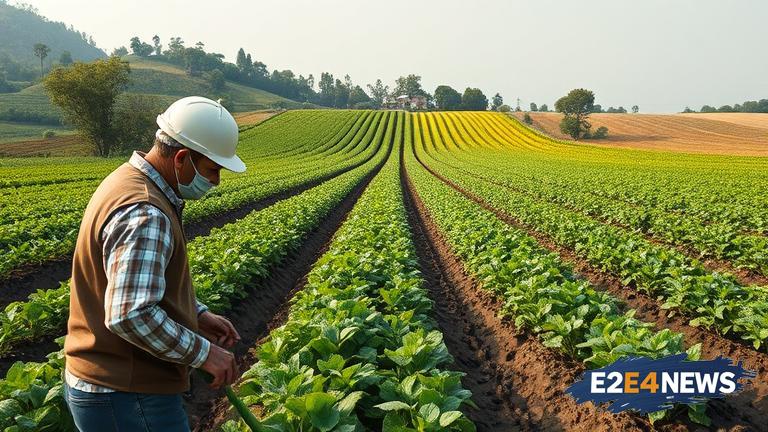The agricultural sector in Turkey is facing a severe crisis, with a significant decline in the number of registered agricultural workers. According to a recent statement by a Turkish MP, there are only 14,000 registered agricultural workers remaining in the country. This drastic decline has raised concerns about the future of agriculture in Turkey, which has historically been a major contributor to the country’s economy. The MP warned that the sector is on the verge of collapse, with many farmers struggling to find workers to help with harvesting and other tasks. The decline in registered agricultural workers is attributed to various factors, including the lack of job security, low wages, and poor working conditions. Many agricultural workers have migrated to other sectors, such as construction and manufacturing, in search of better job opportunities. The Turkish government has been criticized for not doing enough to support the agricultural sector, with many farmers feeling that their concerns are being ignored. The MP called on the government to take immediate action to address the crisis, including providing financial support to farmers and improving working conditions for agricultural workers. The crisis in the agricultural sector has also raised concerns about food security in Turkey, with many worrying that the decline in agricultural production could lead to shortages and price increases. The Turkish agricultural sector has been facing challenges in recent years, including drought, pests, and diseases, which have further exacerbated the decline in production. The sector is also heavily reliant on imported goods, which has led to a significant trade deficit. The MP’s warning has sparked a debate about the future of agriculture in Turkey, with many calling for a comprehensive strategy to support the sector. The government has announced plans to increase support for farmers, including providing subsidies and improving irrigation systems. However, many farmers remain skeptical, citing a lack of trust in the government’s ability to deliver on its promises. The crisis in the agricultural sector has also had a significant impact on rural communities, with many families relying on agriculture as their primary source of income. The decline in agricultural production has led to a decline in rural employment, with many young people leaving their villages in search of work in urban areas. The Turkish government has been urged to take a more holistic approach to addressing the crisis, including providing support for rural development and improving access to education and healthcare. The MP’s warning has highlighted the need for urgent action to address the crisis in the agricultural sector, with many fearing that if left unaddressed, the sector could collapse entirely. The Turkish agricultural sector is not only important for the country’s economy but also for its food security and rural development. The government must take immediate action to support the sector, including providing financial support to farmers and improving working conditions for agricultural workers. The crisis in the agricultural sector is a complex issue, requiring a comprehensive and multifaceted approach. The government must work with farmers, agricultural workers, and other stakeholders to develop a strategy that addresses the root causes of the crisis and provides a sustainable future for the sector. The future of agriculture in Turkey hangs in the balance, and it is imperative that the government takes immediate action to address the crisis. The MP’s warning has sounded the alarm, and it is now up to the government to respond with a comprehensive plan to support the agricultural sector. The clock is ticking, and the future of Turkish agriculture depends on it.
